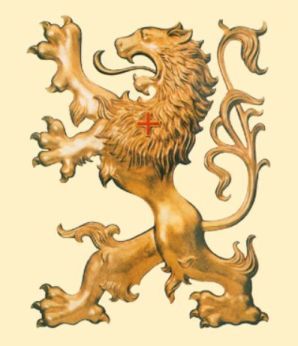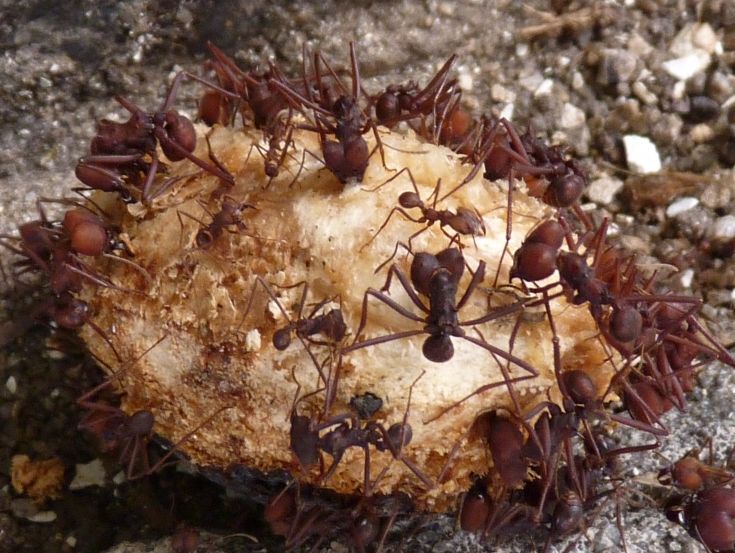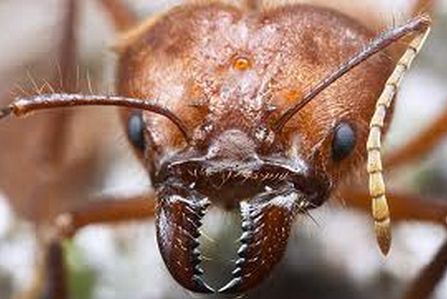|
Plinio Corrêa de Oliveira
The Termite Man
Folha de S. Paulo, July 11, 1981 (*) |
|
|
I know the case of an old farmer of São Paulo, the master of a vast coffee plantation and of a spacious mansion, square-shaped with two floors, a door in the center and windows of equal size throughout the facade. No external decoration. The farmer, as is traditionally the case in Brazil, was also a lawyer and a politician. With his family together, property titles safe, black earth, loyal farm hands and peaceful neighbors, nothing disturbed the tranquility of this hardworking farmer. However, an unexpected adversary attacked his so solid fief at its core. I say its core because it unexpectedly burst into his house. Even more surprisingly, this adversary came from the bottom up. More precisely, there were thousands of adversaries — perhaps millions. The tiny adversaries, gaining ground millimeter by millimeter in unperceived silence, conquered the subsoil while in the house above the farmer and his family worked, ate, drank, slept and entertained themselves. One beautiful day, a few broke into the pantry. The farmer killed them and ordered an investigation. Then he found out that they were so numerous that to attempt any resistance was useless. The termites, for that’s what they were, had built such a vast labyrinth into the subsoil that it would be useless to destroy it. To get back to the story, the farmer moved away, the house was abandoned and the plantation house itself began to be invaded. This farmer who thought he had nothing to fear from any potentate, was ruined by myriads of tiny, silent, and obscure adversaries.
I recalled this when I began to write this article, because the subject I wanted to write about was the triumph of midgets in modern society. By midgets I mean those small-minded men who fit neatly into the little slots of everyday life. They want a life made of everyday banalities. Yesterday was colorless, odorless, and insipid for them, just like today and tomorrow. Banality is the oxygen they breathe, and the pleasure they derive from things is essentially repetition. For these midgets, everything which is great or venerable because of antiquity, or magnificent because of the future it unfolds is annoying. In short, everything which goes beyond everyday dimensions: sacrifice, valor, talent, “exquisite” delicacy, tragic misfortunes, and so many other things is nauseating to them. It is necessary to put an end to all of this and to all those who are like this, or in whose spirit something of this is reflected through their manners, language, way of being or conduct. The uncountable changes that have taken place in our century, in almost all aspects of life, constitute victories of the midgets, for they always diminish something or someone. Human society is becoming molded ever more to the taste of the termite-man. As a consequence, great souls feel undermined by our world. Today, whoever aspires to any kind of grandeur, and especially that of virtue, either disguises himself, or immediately the termites hurl themselves upon him from the vast and obscure cellars of mediocrity and they expel him into the regions of incomprehension, indifference and isolation. * * * In this gigantic socio-pathological phenomenon, in this universal insurrection of the midgets against those who surpass them, I see one of the causes of the West’s defeatism. The midget, the termite-man, detests fighting more than anything. Fighting requires great effort and enthuses only great souls. It gives brilliance to greater glories and produces great misfortunes. So the termite-man fights against all forms of fighting. It is a strange battle that he wages by yielding, fleeing (downward, mind you), capitulating or even allowing himself to be crushed if there is no other solution. To this family of souls belong those who are unconditionally ecumenical. Fearing the heat of the disputes between religions, the termite-man wants to melt them all into one more or less atheist pan-religion. For the termite-man, all beliefs and disbeliefs should be put down the same drain: ecumenism. For the same reason, the termite-man is ready to sell his country cheaply, just as he does with his beliefs. He prefers not to see the enemy. If he is forced to see him, he imagines him on the way to conversion: de-Stalinized, human-looking, transformed by a peaceable (and ambiguous) socialism. If the enemy penetrates the political sectors of the country, he smiles at him and calls him “up-to-date” and “with it.” If he infiltrates Catholic circles, he analogously calls him “progressive.” When the enemy grows so large as to become a threat, the termite-man proclaims the danger irreversible and tries, as a halfway measure, a strategy of “convergence” inspired in the maxim “the ring may go, but the finger remains.” Finally, if after taking his ring, the enemy demands also his finger, the termite-man mumbles, “The finger may go but life remains.” * * * But the termite-man makes all these concessions only to the left. His inexorable and silent action of infiltration, corrosion and erosion is done in the right and center, where he habitually installs himself. There he neither cedes, flees nor converges. There he mines. He detests everything which is elevated, noble or harmoniously unequal. For the termite-man the more equality the better, and because he sees in the left an invitation to a completely razed and flat equality, there, on the way to communism or anarchy, lie his pacifistic aspirations. We live in a time of revolution. It is banal to say so. Yes, it is the revolution of the termite-men against anything that has any grandeur.
(*) Original title: O homem-saúva. The preceding article has been translated and adapted for publication without the author's revision. –Ed. American TFP. |
|



